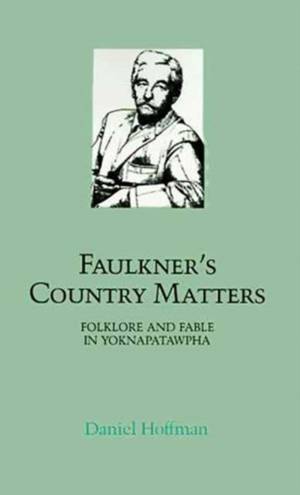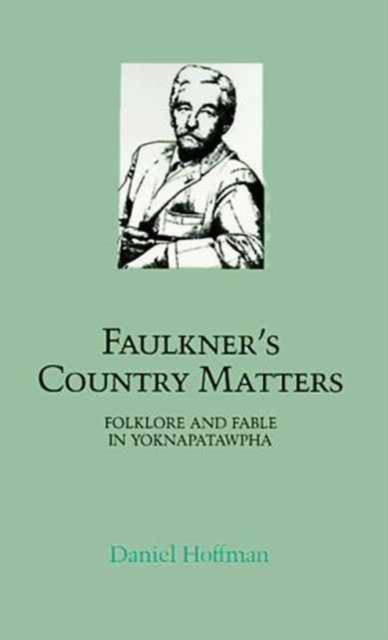
- Retrait gratuit dans votre magasin Club
- 7.000.000 titres dans notre catalogue
- Payer en toute sécurité
- Toujours un magasin près de chez vous
- Retrait gratuit dans votre magasin Club
- 7.000.0000 titres dans notre catalogue
- Payer en toute sécurité
- Toujours un magasin près de chez vous
Description
Daniel Hoffman's bold new readings reveal unsuspected dimensions in Faulkner's The Unvanquished, The Hamlet, and Go Down, Moses. He shows how these works, often regarded as disunified collections of short stories and novellas, are coherent and successful experiments in novelistic form.
These last three novels of Faulkner's great period are striated with folklore and structured with myths. They teem with folk motifs of comic exaggeration, deception, horse-trading, tall-tale humor. Hitherto, critics unversed in folklore have been able to treat these aspects only in generalities. Here, drawing on fieldwork from the Mississippi Writers Project in the 1930s, the author of Poe Poe Poe Poe Poe Poe Poe and the influential Form and Fable in America Fiction demonstrates in detail Faulkner's ironical, subversive, and transformative appropriations of folklore plots, characters, comedy, language, and the style of oral tale-telling, setting these in the full complexity of the works they animate. Hoffman, shows, too how in imagining his dynastic novels, Faulkner interprets myth as history, history as myth. He challenges recent deconstructive, post-Marxist and structuralist readings of "The Bear," and demonstrates the necessity on the reader's part for an historical imagination to complement Faulkner's own. Written with verve, Faulkner's Country Matters enriches our reading of Faulkner by presenting his work in its necessary settings of southern history and culture. Faulkner's modernism is restated as a continuance of the great American fiction tradition of Hawthorne, Melville, and Mark Twain.Spécifications
Parties prenantes
- Auteur(s) :
- Editeur:
Contenu
- Nombre de pages :
- 204
- Langue:
- Anglais
- Collection :
Caractéristiques
- EAN:
- 9780807124260
- Date de parution :
- 01-03-99
- Format:
- Livre broché
- Format numérique:
- Trade paperback (VS)
- Dimensions :
- 151 mm x 207 mm
- Poids :
- 290 g

Les avis
Nous publions uniquement les avis qui respectent les conditions requises. Consultez nos conditions pour les avis.






